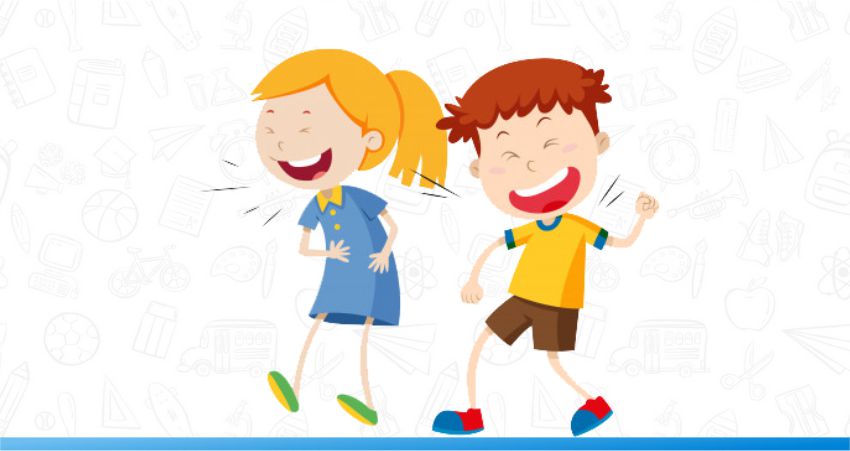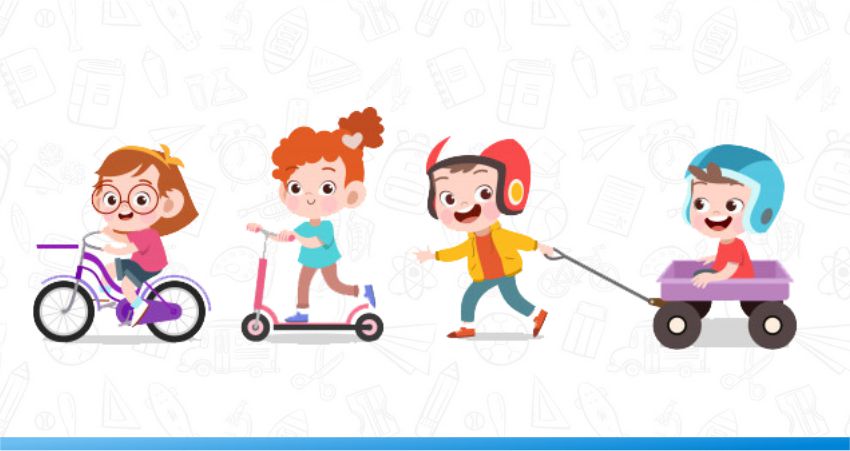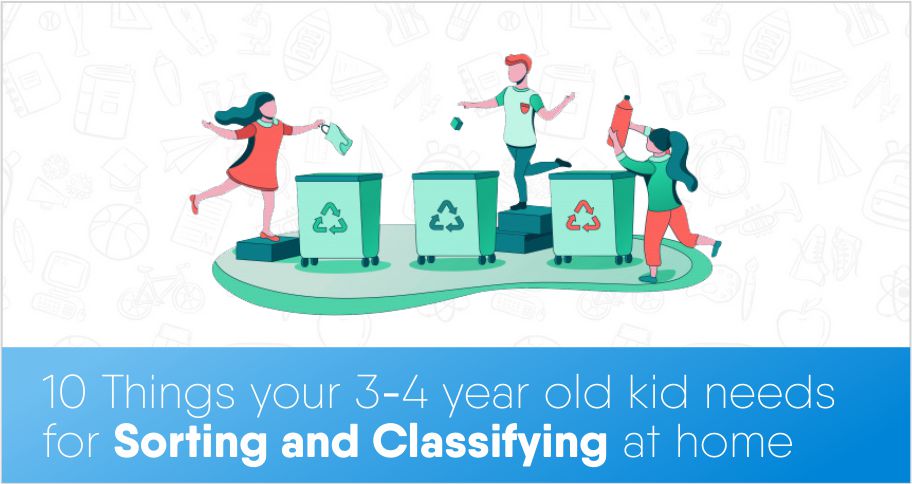Swipe Up
What to Expect from a Preschooler?
orchidadmin |
Parents Corner |
2023-09-05 |
null mins read

Table of Contents
Introduction
As parents of a three-year-old, you are on the lookout for things that lie ahead for your preschooler. Hopefully, you have the vitality left to appreciate the incoming of a deluge of questions from your preschooler. As your preschooler and you step up on a brand new year of exploration of the world, you are about to witness your child’s imagination skills at their highest.
This is a learning period where your 3-4-year-old child is undergoing developmental changes and is prepping up for sorting and classifying before you start going to school.
Stages of Development in a Preschooler
Children as a rule progress in a characteristic, unsurprising arrangement starting with one formative achievement then onto the next, better known as developmental milestones. Yet, every youngster develops and gains abilities at their own pace. A few kids might be progressed in one zone, for example, language, yet slow in another, for example, motor or cognitive development. Developmental milestones or achievements are measured in the following significant regions:
- Physical development
- Emotional development
- Social development
- Cognitive development
- Motor and learning
- Language development
As your 3-year-old’s ability to focus develops, his aptitude and ability to sort and classify objects also gets a boost. He will be better ready to adhere to guidelines and express his needs and musings in a better way. The metamorphosis from a baby to a preschooler, however, can frequently be somewhat uneven. Anticipating a decent amount of drama and tantrums that accompany this learning stage will bring a lot of bliss and creativity in your child.
Preschooler Development
During preschool, astounding changes occur in the thinking abilities of your child. Attaining the developmental milestones of emotional, social, and cognitive development can help your preschooler express his thoughts in new and intriguing manners. Your child can actively utilize his brain for play and learning. At the age of 3-4 years, toddlers start contrasting, composing, examining, and concocting an ever-increasing number of complex approaches to solve problems.

Alongside a family’s paediatrician, preschool educators must be aware of the developmental milestones of the child. These milestones help grown-ups to comprehend and perceive the growth and development of preschoolers. Milestones are not rigid parameters to determine your child’s development; rather, help identify children’s key skills and behavior at a particular age.
The preschooler is extraordinary. You can assist youngsters with learning and help them reach their maximum potential.
Your 3-to 4-year-old preschooler will proceed to develop and build on their perspectives in the coming year owing to the developmental milestones achieved and will start sorting and classifying things in a different way.
Cognitive Development
Cognitive development encompasses the whole learning cycle of analyzing information and posing questions. Since they are currently ready to sit still and focus for a more extended timeframe, they can take in considerably more around them.
Your child’s creative mind will bloom this year. As they build up their memory and begin to see more about his general surroundings. You may discover there are times when you don’t have the foggiest idea of how to reply. The unique cognitive development process will expand your child’s imaginations, problem-solving abilities, and memory retention.
Social Development
Around your youngster’s third birthday celebration, you may notice the difference in how they communicate with other kids. This is regularly where numerous youngsters additionally require some assistance figuring out how to explore those connections. Social development will help your child build on relationships.

Furthermore, while there may at present be an extraordinary grown-up in your kid’s life that they don’t care to let far out, 3-year-olds can begin growing genuine fellowships with new companions (and now and again nonexistent ones). Preschoolers are impacted by the things they love, where they tend to imitate their preferred characters from TV or books, cartoons.
Emotional Development
At the age of 3-4, your kids experience emotional development where the urge to be emotionally independent crops us. You may notice your child throwing temper tantrums, forging relationships with peers, and cooperating with them. Emotional development also marks the expression of feelings of kindness, empathy, and an understanding of emotions such as separation, sadness, and happiness around his near vicinity.
10 Things That A Preschooler Should Learn

Considering the developmental milestones, the behavior of a 3-4-year-old can be easily predicted. Let us talk about the most important things that a preschooler is expected to do:
- Ask a lot of questions that may, at times, be annoying. How do the birds fly? Why is water not sweet? A lot of whys become an integral part of communication with a preschooler.
- Dig into their creative side, weave imaginary stories and act out scenes with toys and puzzles in his la-la land.
- Remember incidents or parts of stories when recollecting. Recognize objects and familiar places and people.
- Can say their name, speak clearly, and answer easy questions as part of this learning process.
- Try to comfort people, show affection and kindness to others without any prompts.
- Understands the concept of sharing.
- Is vocal when expressing anger or despair.
- Is dependent on caregivers, parents and shows separation anxiety from close ones.
- Realizes the importance of sharing is caring and shares toys and other objects with his friend group. Understanding ‘mine’ and ‘yours’ creeps in, which can be difficult to cope with.
- Can flip the pages of a book, use blocks to form structures, and do simple activities of climbing, jumping, and even hopping.
Conclusion
Parents need to keep track of the developmental milestones of their children. Try integrating your everyday conversations with word and behavioural themes to make it easier for your preschooler to learn new things. In case your child shows an overtly rigid, fearful, or passive behaviour, try consulting your child’s paediatrician for a review.
Comments(0)
Admissions Open for 2025-26
Categories
Academics
Arts
Astronomy
Badminton
Basketball
CBSE Board
Chess
Child Learning
Children's Literature
Civics
Coding
Creativity
Cricket
Cycling
Dance
Days and Festival
English
Entertainment
Environmental Awareness
Famous Personalities
Featured Blogs
Football
Full Form
Geography
Health and Nutrition
Hindi
Hockey
Horticulture
Maths
Music
Parents Corner
Public Speaking
QnA
Recommended
Robotics
Science
Scientist and Their Inventions
Social Skills
Sports
Swimming
Taekwondo
Teacher's Corner
Theatre
Recent Blogs
How to Choose the Right CBSE School in Aurangabad for Your Child
How to Choose the Right CBSE School in Ahmednagar for Your Child: A Parent's Guide
Choosing the Right CBSE School in Bhopal for Your Child: Essential Tips and Considerations
How to Choose the Right CBSE School in Nagpur for Your Child: A Comprehensive Guide
How to Choose the Right CBSE School in Jaipur for Your Child
How to Choose the Right CBSE School in Indore for Your Child
How to Choose the Right CBSE School in Gurgaon for Your Child
How to Choose the Right CBSE School in Pune for Your Child
How to Choose the Right CBSE School in Kolkata for Your Child
How to Choose the Right CBSE School in Hyderabad for Your Child
CBSE Schools In Popular Cities
CBSE Schools in Bangalore
CBSE Schools in Mumbai
CBSE Schools in Pune
CBSE Schools in Hyderabad
CBSE Schools in Chennai
CBSE Schools in Gurgaon
CBSE Schools in Kolkata
CBSE Schools in Indore
CBSE Schools in Sonipat
CBSE Schools in Delhi
CBSE Schools in Rohtak
CBSE Schools in Bhopal
CBSE Schools in Aurangabad
CBSE Schools in Jabalpur
CBSE Schools in Jaipur
CBSE Schools in Jodhpur
CBSE Schools in Nagpur
CBSE Schools in Ahmednagar
CBSE School In Tumkur


Speak Your Mind
Save my name, email and website in this browser for next time I comment